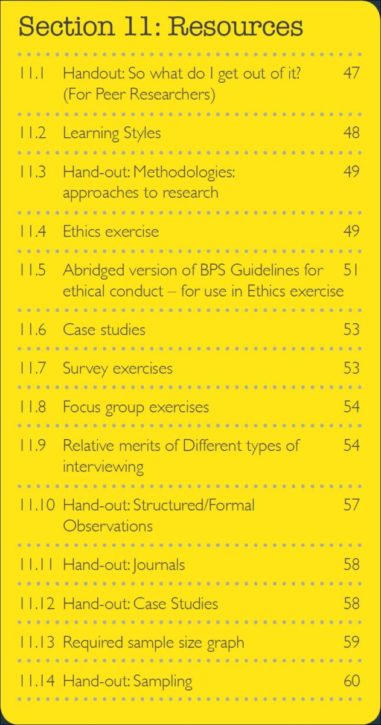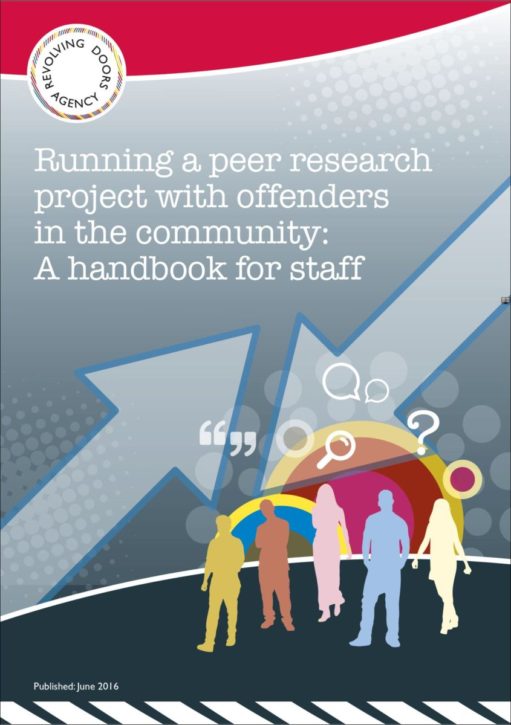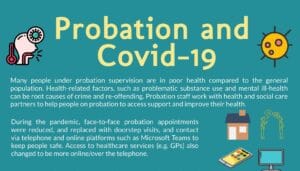Revolving Doors Agency
I have to confess to being a big fan of the work of the Revolving Doors Agency. This is based solely on my experience of reading and reviewing their publications which are consistently:
- Clear and easy to understand
- Based on an evidence base which is transparent and fully referenced
- Heavily rooted in the views of service users
- Always seeking to address real-world issues
So it’s a bit of a bonus that RDA seems to be getting ever more productive. Last week (30 June 2016), they published three new reports which are essentially practical handbooks/toolkits on service user involvement for staff working in the Criminal Justice System.
This post looks at a toolkit designed for probation staff (or others involved with probation) who want to run a research project with a group of service users, entitled:
Running a peer research project with offenders in the community: A handbook for staff
A toolkit
This publication is very much a toolkit and focuses very much on the practicalities of setting up and implementing a peer research project in probation. If you’re interested in the evidence base and the ethical issues associated with peer research, I suggest you have a read of another recent publication by Revolving Doors which reviews the literature in this area and highlights key issues.
The toolkit is comprehensive and includes ten major sections:
- What is peer research?
- Planning a peer research project
- The nature of research
- Literature reviews
- Ethics
- Quality assurance
- Research methods
- Sampling and access
- Data analysis
- Dissemination
The toolkit is also backed up by a very useful resource section which includes everything you might need for running a peer research project from recruiting your researchers to training exercises.
There are 14 different resources which you can see listed in the graphic below:

Assessment
Having run a number of peer research projects myself, I have to say that this toolkit is a great time saver because of its attention to detail on the key issues which can often stop peer research in its tracks.
From indicative budgets to doing a skills inventory of your researchers; from avoiding leading questions to the pros and cons of structured interviews, all the critical issues are covered.
Running a peer research project is hard work but enormously enriching. Done well, it can produce a more sophisticated and authentic picture of a particular issue as well as developing the skills and confidence of peer researchers.
A win-win in anyone’s language.
So why not download a copy of the report and get started.









